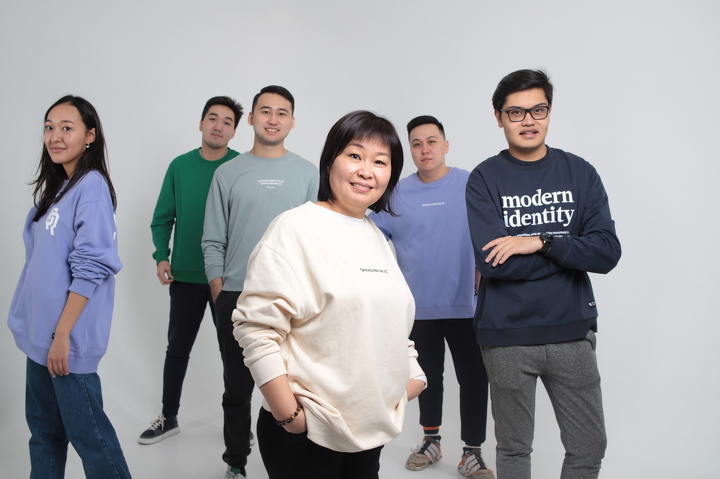NUR-SULTAN – The ITeachMe Competence Development Center announced a new project on developing a roadmap for improving the inclusion of people with disabilities in the IT sphere on June 14, reported Kazinform.

Director of ITeachMe Zahira Begaliyeva and her team. Photo credit: Forbes.kz.
The ITeachMe Competence Development Center is a public fund aimed at increasing the inclusion of people with disabilities in the social life and labor market, particularly in the field of digital technologies. The fund works with people with special needs and offers them training opportunities to help them with mental health and self-acceptance, as well as employment and financial independence.
Director of ITeachMe Zahira Begaliyeva explained that the fund is currently conducting applied research in order to develop the roadmap for the integration of people with disabilities in digital processes. The project, supported by the ARGO Civil Society Development Association, is nearly completed. The Kazakh Ministry of Education and Science, Ministry of Digital Development, Innovations and Aerospace Industry and Ministry of Labor and Social Protection of Population are also involved in the creation of the roadmap.
Begaliyeva noted that when the coronavirus pandemic first started and the world had rapidly shifted its operations online many people with disabilities were left without access to digital technologies, including online state services and online shopping.
Kazakhstan is one of the countries that have ratified the United Nations (UN) Convention on the Rights of Persons with Disabilities. However, the impact of this ratification on the everyday life of people with disabilities has been slow so far. The new roadmap would help both government and non-government agencies to uphold the rights of the disabled community and apply policies and laws in real-life practices.
Given the transition toward remote learning over the past year, ITeachME proposes the improvement of state legislation to ensure equal access to digital services, digital literacy and online learning for people with disabilities. The public fund promotes the idea of making Kazakh digital policies as inclusive as possible by updating digital technologies and ensuring universal access to these technologies. The next step would be to educate people with disabilities on digital literacy.
“We plan to develop educational programs and organize online training. More specifically, we plan to organize educational courses for people with disabilities to improve digital literacy, ranging from basic computer skills to professional courses,” said Begaliyeva.
Another dimension of inclusivity that ITeachMe advocates for includes the creation of inclusive science, technology, engineering and mathematics (STEM) laboratories in all regions of the country. Currently, while there are laboratories in every region, there are no inclusive laboratories which makes the STEM field inaccessible for the disabled community.
Begaliyeva believes that the STEM and IT spheres have many opportunities for employment and are rapidly developing in Kazakhstan, which is why people with disabilities deserve to have access to the booming industries. In order to open up new opportunities, ITeachMe also actively works with potential employers to dispel any stereotypes about employees with disabilities and demonstrate their value.
Today, the fund has completed four seasons of its projects with 100 participants, out of whom 37 have already found a job, eight became entrepreneurs, 14 are doing freelance work and 21 are completing internships.
ITeachMe is currently working on the fifth season of its training courses. This year, it is expanding from three to five offered courses.
